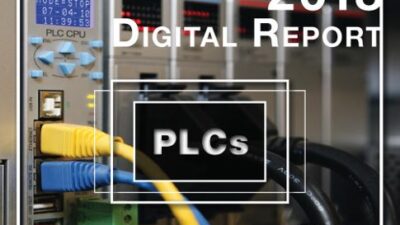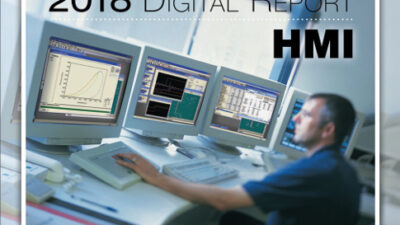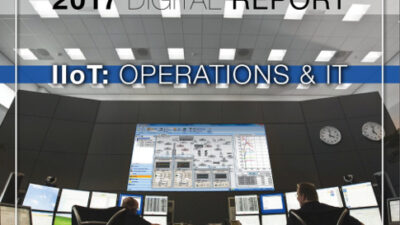Manufacturers know a bargain when they see one, and they will continue to take advantage of any economies of scale offered by equipment used in other industries.
Nodes and node groups can easily be added to or removed from existing AeroComm MeshRF networks with little effort or additional cost, the company says.
Manufacturers know a bargain when they see one, and they will continue to take advantage of any economies of scale offered by equipment used in other industries. Manufacturers have used RFID (radio-frequency identification) technologies for years; widely reported mandates from Wal-Mart and Target, U.S. Department of Defense (DoD), and Food and Drug Administration (FDA) will continue to stretch capabilities of the technology and lower its price. Click here to read some recent developments helping to improve the RFID market.
In response to what AeroComm calls heavy market demand for a robust mesh networking protocol , the company introduces its MeshRF peer-to-peer technology. The decentralized mesh topology will be embedded into 900-MHz transceivers. MeshRF’s instinctive networking architecture allows a wireless LAN system to forward traffic between transceiver ”nodes” without need for a master transceiver. Further enhancing scalability and reliability are the protocol’s self-healing and auto-routing abilities. If one node faces dense RF traffic/noise or fails to connect for any reason, data are instantly redirected through an alternate path. With random channeling, multiple communication links can occur at exactly the same time one-to-one or one-to-many. The company says the result is a highly dependable wireless network that has no bottleneck or point of failure. By supporting a self-enabling system of nodes, each with the ability to independently talk with another, MeshRF complements IEEE 802 standards. It can employ data-encryption standards. Read more at the AeroComm site.
Recognized names have jumped into RFID . Texas Instruments, Symbol Technologies, NCR, Philips, and Sun Microsystems are some of the big-name companies that have entered the world of RFID, according to technology research firm ABI of Oyster Bay, N.Y. Other recognizable names have entered the RFID fray as system integrators, namely IBM, Accenture, BearingPoint, Unisys, RedPrairie, and Manhattan Associates. Process questions abound, such as where to store the data, what data should be stored, how to secure and maintain data, and what is the optimal method to integrate data with existing business solutions. Some integrators, such as SAP, are developing enterprise-level RFID patches for customers. There are others, known as warehouse management systems companies, which include Manhattan Associates, RedPrairie, and Provia. Long-time DoD integration partners such as Unisys, Lockheed Martin, and Accenture are stepping up government-based RFID efforts, the research firm says. For more, go to the ABI site.
U.S. Food and Drug Administration ( FDA ) in a Feb. 18 report highlighted specific steps the agency is taking to keep the U.S. drug supply secure. The report cites that RFID tagging “of products by manufacturers, wholesalers, and retailers appears to be the most promising approach to reliable product tracking and tracing” and “Most importantly, reliable RFID technology will make the copying of medications either extremely difficult or unprofitable.” The agency goes on to detail a timeline that would lead to mass serialization and RFID adoption by 2007. “AIM applauds the FDA for…leadership in utilizing technology to combat counterfeit drugs and the dangers that they represent to patient safety,” said Dan Mullen, president, AIM Global . FDA, AIM says, is working with sponsors and participants of RFID pilots to address regulatory issues. Link to the FDA report here. AIM Inc. is a not-for-profit global trade association on automatic identification, data collection and networking in a mobile environment. More information from the Warrendale, PA, group is on its site.
A get-started RFID Webcast is available from Modern Materials Handling .
—Mark T. Hoske, [email protected], Control Engineering editor in chief, [email protected]


